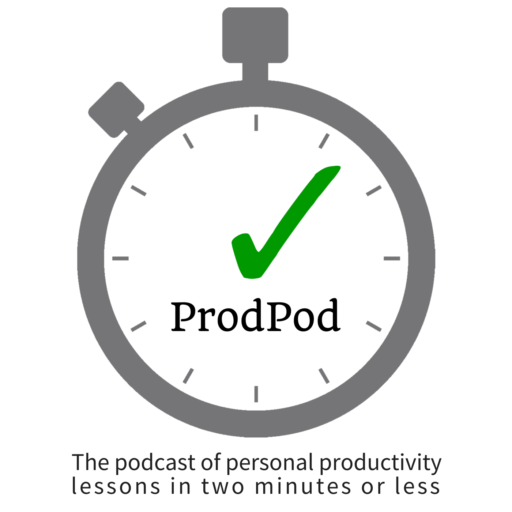Welcome to Episode 33 of ProdPod, the podcast of productivity lessons in two minutes or less. I’m Ray Sidney-Smith, your productivity guide.
I’m rather comfortable with conflict resolution, but I see an abundance of poor conflict handling in the media today (especially coming from our politicians), I thought it might help to give an explanation of two foundational principles, Think Win-Win and Principled Negotiation, that have served me well in my business and personal life.
If you’ve ever read Stephen Covey’s The 7 Habits of Highly Effective People, you probably remember Habit #4, Think Win-Win. If you’re not familiar, Dr. Covey basically espouses that you should strive for three win’s in any long-term solution or agreement: mine, yours and ours. Therefore, if any of those three parties should lose, it’s “no deal.” The reasoning is that it’s a loss for everyone in an interdependent group when one person loses.
It was several years later while studying Conflict Resolution and Mediation that I learned about the book, Getting to Yes: Negotiating Agreement Without Giving In, [great summary here] by Fisher, Ury and Patton (a book that was born out of the Harvard Negotiation Project). This seminal work primarily focuses on teaching us Principled Negotiation, which is to:
- “separate people from the problems” (so that you can be compassionate with people, remove ego from the scenario as best as you can, and clearly see your other party’s perspective);
- “focus on interests, not positions” (which brings the parties to discussing what they want and not their superficial stance when conflict arises);
- “mutual gains” (as the source of Covey’s Habit #4 encouraging brainstorming and viewing the issues broadly); and
- “insist on using objective criteria” (by using fair standards decided upon upfront).
The genuine success in Covey’s Think Win-Win and Getting to Yes’ Principled Negotiation is that you educate your other party about the concepts so that you’re working toward the same interdependent reality. The more we work on mutual gains negotiation the more we can work through conflict to truly get positive things done.
